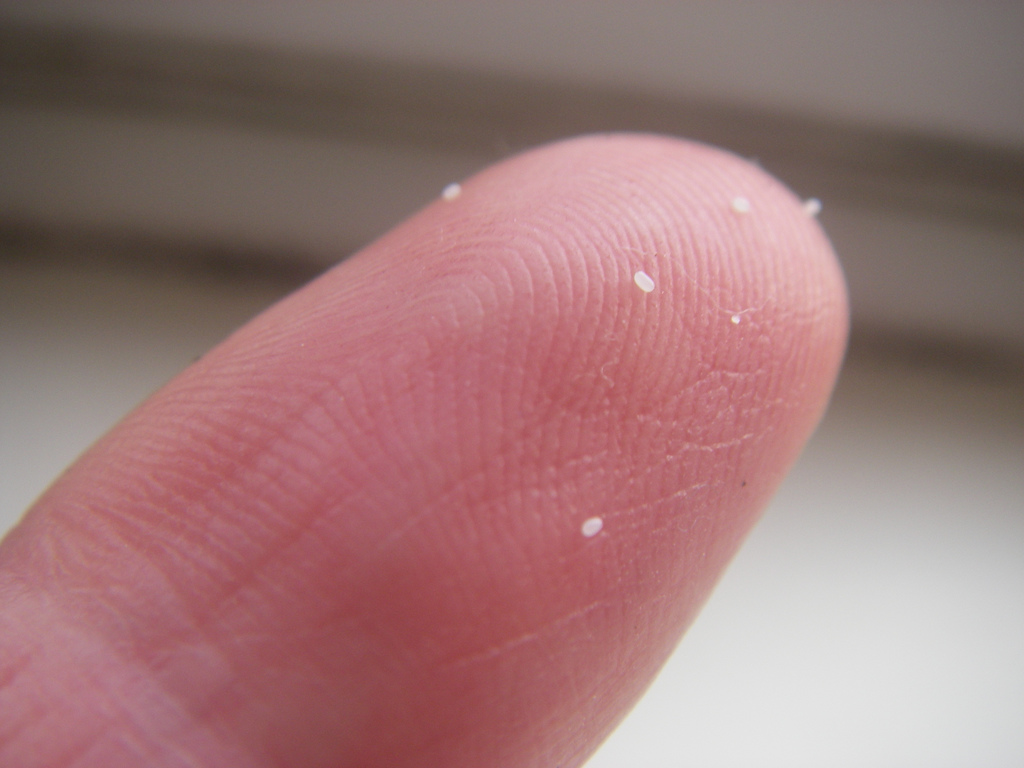Still struggling to get the flea infestation in your home under control? You can spray, bomb and powder it all day long, but the problem will likely persist unless you treat the yard as well.

Photo of flea eggs on the finger by Denni Schnapp.
Fleas can thrive in the yard just as easily — if not more easily — than inside the home. They’ll have access to hosts such as squirrels, field mice, raccoons, possums and more, along with water from free-standing puddles of rain. Allowing fleas to run rampant in your yard can turn an otherwise small problem into an epidemic.
What Should I Do?
The good news is that there are several different treatment options available for flea infestations in the yard. Before you go throwing in the towel, take a look at some of the treatment optioned listed below. With a little bit of work and dedication, you can treat even the most heavily flea-infested yard.
Diatomaceous Earth (DE)
Diatomaceous Earth (DE) is one of my favorite flea treatment products for yards. Simply sprinkle the powder-like substance around your yard and it will instantly start to kill off these blood-sucking pests. You can purchase DE from most home improvement and DIY pest stores for about $10-$20 bucks.
You might be surprised to learn that DE is actually made of the fossilized remains of microscopic algae known as diatoms. Other chemical-based pesticides typically have little effect on fleas due to the flea’s hard protective shell. DE, however, is able to penetrate through the shell, essentially causing them to dry out.
The microscopic bone fragments cut through the flea’s shell as it walks over the DE powder, resulting in a highly effective treatment option for both indoor and outdoor environments.
DE is technically a mechanical killer in the sense that it treats pest infestations by piercing through them rather than killing them with a toxic chemical.
Tips For Keeping Fleas Out of Your Yard
- Mow your grass on a regular basis and discard the clippings away from your home.
- Apply cedar mulch around plant beds — cedar is a natural repellent for fleas and ticks.
- Encourage birds by hanging a feeder or two in your yard. Birds will consume both the food in the feeder and any fleas they come across.
- Prune away shrub and brush overgrowth.
- Avoid overwatering your yard.
